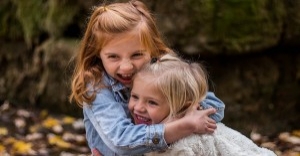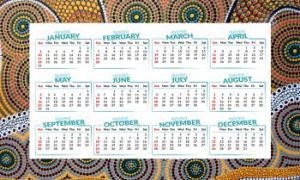

This template is used by Educators for observations. This template links to the sub-outcomes of Learning Outcome 4 - Children Are Confident And Involved Learners.
To support children achieve learning outcomes from the EYLF Framework Version 2.0, the following list gives educators examples of how to promote children's learning in each individual learning outcome. These can be used when assessing children's learning, critically reflecting on the experiences planned, strategies to implement for each learning outcome and more. It also encourages and promotes each individual outcome throughout the early childhood setting.
This template is used by Educators for observations. This template links to the sub-outcomes of Learning Outcome 3 - Children Have A Strong Sense Of Wellbeing.
This is a guide for educators on what to observe under each sub-learning outcome from the EYLF Framework Version 2, when a child is engaged in play and learning. Educators can plan experiences for the curriculum and for individual learning and gain an understanding of how children can achieve each individual outcome.
THE EYLF Outcomes and Children Achievement Posters is a guide for educators on how children can achieve under each sub-learning outcome of the EYLF Learning Outcomes Version 2.0. When evaluating individual and group experiences under a particular outcome, educators can use this to see if a child has achieved each outcome. Educators can also plan experiences for the curriculum and for individual learning and gain an understanding of how children can achieve each individual outcome.
This template is used by Educators for observations. This template links to the sub-outcomes of Learning Outcome 2 - Children Are Connected With And Contribute To Their World.
ACECQA has released new resources explaining the updates to the nationally approved learning frameworks EYLF, and MTOP and clarification and expanded explanation across parts of the original learning frameworks. The following provides the EYLF and MTOP Version 2 Booklets as well as other information resources.
The EYLF In Action Posters provide examples of how each learning outcome can be demonstrated within the learning environment. These are great to display to show how children and Educators are actively engaging in each learning outcome.
The EYLF Outcomes and Activities Posters provide a list of activities under each individual eylf learning outcome. The list of activities matches a specific outcome. This will help to understand what types of activities could come under each EYLF Learning Outcome.
The EYLF Posters With Images can be used to display within the service. Each individual outcome includes an image and the sub-outcomes. The Learning Outcomes are to be used to reflect on children’s learning and focus on what a child can achieve. These include Version 2.0 outcomes which were recently updated (2023).
 In Norway and most other Scandinavian countries, children nap in the outdoors. According, to research outdoor sleeping not only promotes better daytime sleeping, but it… Read More
In Norway and most other Scandinavian countries, children nap in the outdoors. According, to research outdoor sleeping not only promotes better daytime sleeping, but it… Read More
 Feel Good Feb is dedicated to saying thanks, expressing gratitude, and promoting good deeds and random acts of kindness.
Read More
Feel Good Feb is dedicated to saying thanks, expressing gratitude, and promoting good deeds and random acts of kindness.
Read More
 Here’s a comprehensive Mobile Phone and Smart Watch Policy tailored for early childhood education and care (ECEC) services in Australia, aligned with the latest 2025… Read More
Here’s a comprehensive Mobile Phone and Smart Watch Policy tailored for early childhood education and care (ECEC) services in Australia, aligned with the latest 2025… Read More
 Across the early childhood education and care sector, educators are sounding the alarm: current staffing ratios are insufficient to deliver safe, meaningful, and developmentally appropriate… Read More
Across the early childhood education and care sector, educators are sounding the alarm: current staffing ratios are insufficient to deliver safe, meaningful, and developmentally appropriate… Read More
 Thanks to the new National Model Code and upcoming regulatory changes under the National Quality Framework (NQF), early childhood services across Australia must now implement… Read More
Thanks to the new National Model Code and upcoming regulatory changes under the National Quality Framework (NQF), early childhood services across Australia must now implement… Read More
 In the quiet hum of a weekday morning, something felt off. Preschool doors opened, but classrooms remained silent. No greetings. No redirection. No educators. And… Read More
In the quiet hum of a weekday morning, something felt off. Preschool doors opened, but classrooms remained silent. No greetings. No redirection. No educators. And… Read More
 A: In early childhood education and care (ECEC) settings across Australia, mobile phone use by educators is now subject to strict national reforms aimed at… Read More
A: In early childhood education and care (ECEC) settings across Australia, mobile phone use by educators is now subject to strict national reforms aimed at… Read More
 The end of the year is a busy and emotional time in early childhood services. Many services close for a short period over Christmas, and… Read More
The end of the year is a busy and emotional time in early childhood services. Many services close for a short period over Christmas, and… Read More
 In early childhood education and care, child safety is not just a number—it’s a practice. While educator-to-child ratios are essential, they are only one part… Read More
In early childhood education and care, child safety is not just a number—it’s a practice. While educator-to-child ratios are essential, they are only one part… Read More
 Being an educator is both rewarding and demanding. Between planning, documentation, room management, and supporting children’s wellbeing, the workload can feel overwhelming. That’s why practical… Read More
Being an educator is both rewarding and demanding. Between planning, documentation, room management, and supporting children’s wellbeing, the workload can feel overwhelming. That’s why practical… Read More

Embed Aboriginal Practices throughout the year with this yearly calendar created by Aboriginal Education Association...
See more...
In the heart of every early learning center, educators hold a uniquely powerful role—not just...
See more...
Is programming time included in your ordinary hours? Should you be paid overtime if a...
See more...© 2009-2026 Aussie Childcare Network Pty Ltd. All Rights Reserved.

